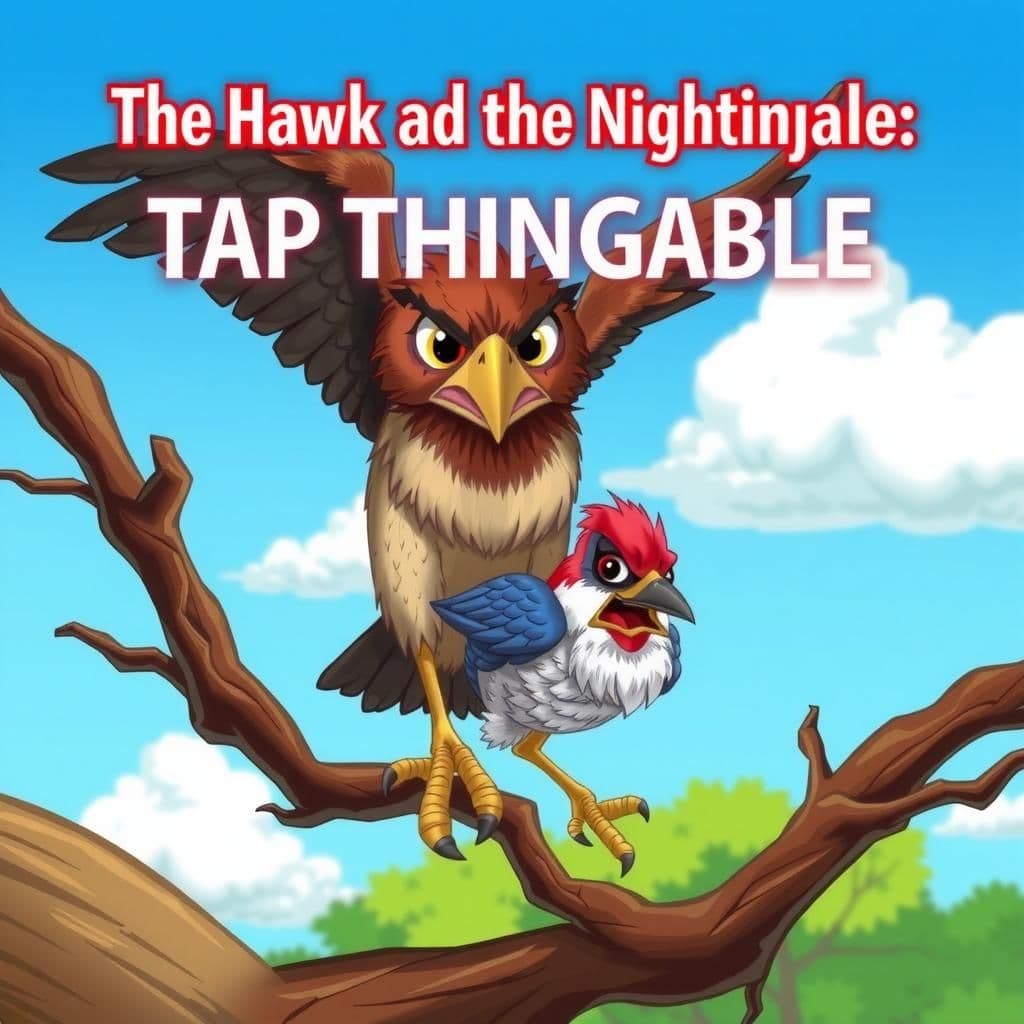The Hawk and the Nightingale

Story Summary
In the classic moral story "The Hawk and the Nightingale," a Hawk captures a Nightingale and dismisses his pleas for freedom, arguing that he would be foolish to forgo an easy meal for the uncertainty of pursuing larger prey. This short moral story illustrates the wisdom of valuing what is readily available rather than chasing after uncertain prospects. As with many small moral stories, it teaches a timeless lesson about the dangers of greed and the importance of appreciating the present.
Click to reveal the moral of the story
The moral of the story is that one should not overlook immediate opportunities for uncertain prospects.
Historical Context
This fable, attributed to Aesop, an ancient Greek storyteller, reflects themes of practicality and the harsh realities of survival in nature. It illustrates the moral lesson that one should not overlook immediate opportunities for uncertain prospects, a common motif in various cultures' folklore, where animals often embody human traits and dilemmas. This tale has been retold in numerous adaptations, emphasizing its timeless relevance in discussions about decision-making and the consequences of choices.
Our Editors Opinion
This fable illustrates the importance of seizing opportunities when they present themselves, rather than pursuing uncertain prospects. In modern life, this is reflected in career situations where individuals might hesitate to take a job offer that is available and promising because they are waiting for a potentially better opportunity that may never materialize. For instance, a recent graduate might turn down a solid entry-level position because they are hoping for an internship with a prestigious company that has not yet responded; in doing so, they risk missing out on valuable experience and growth.
You May Also Like

The Cat and the Cock
In "The Cat and the Cock," a Cat captures a Cock and seeks a justification for eating him, accusing the Cock of disturbing men with his nighttime crowing. Despite the Cock's defense that his crowing helps men wake for their labors, the Cat dismisses his pleas, illustrating a big moral story about the disregard of reason in the face of predation. This short story with moral highlights the consequences of selfishness and the importance of understanding intentions in life-changing stories.

The Labourer and the Nightingale
In the fable "The Labourer and the Nightingale," a Labourer captures a Nightingale to enjoy its beautiful song, only to find that the bird refuses to sing in captivity. After releasing the Nightingale, it imparts three valuable lessons: never trust a captive's promise, appreciate what you have, and do not grieve over what is lost forever. This well-known moral story emphasizes the importance of freedom and gratitude, making it a fitting tale for moral stories for class 7.

The Fisher and the Little Fish
In this classic moral story, a Fisher catches a small fish that begs for its release, promising to grow larger for a future meal. However, the Fisher values the certainty of the small catch over the uncertain potential of a bigger one later, illustrating the lesson that it is better to appreciate what you have than to risk it for something uncertain. This easy small story with moral emphasizes the wisdom found in concise moral stories and the valuable lessons they impart.
Related Collections
Other names for this story
Hawk's Dilemma, Nightingale's Plea, The Hunter and the Songbird, A Soprano's Last Chance, Prey and Predator, The Oak's Lament, Flight of the Nightingale, The Hawk's Choice
Did You Know?
This fable illustrates the theme of practicality over idealism, highlighting the notion that immediate opportunities should not be sacrificed for uncertain future prospects, a lesson relevant in both nature and human decision-making.
Subscribe to Daily Stories
Get a new moral story in your inbox every day.